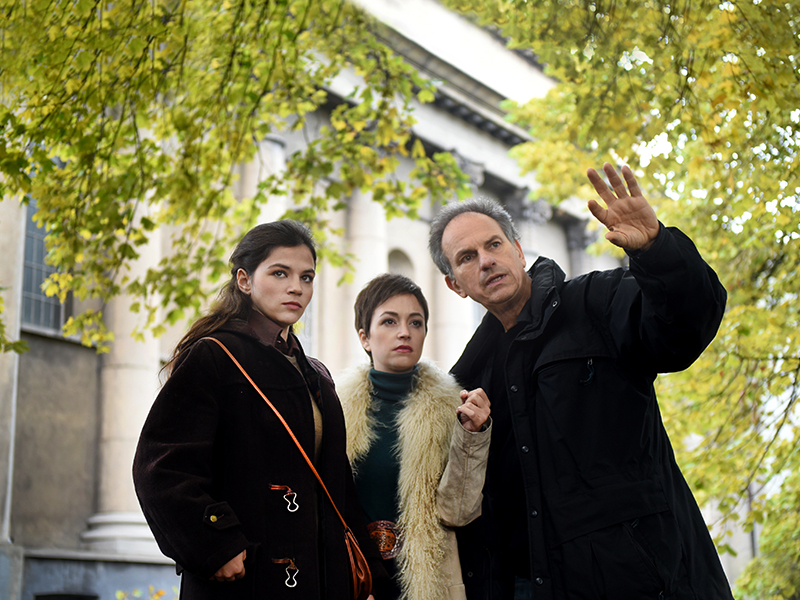Past Life, the new drama from Israeli filmmaker Avi Nesher, is partly a throwback to an era of Israeli cinema that examined the fraught relationship between Holocaust survivors and their descendants during Israel’s first decades.
Even if the film does not feel as prescient or urgent as it may have been two or three decades ago, it is still a gripping tale of two families reconciling past traumas that should enthrall audiences.
After premiering at the Toronto International Film Festival (TIFF) last September, Past Life opens at Canada Square Cinemas in Toronto on July 14.
Inspired by the true events of the Milch family, the film focuses on the relationship between two sisters in their early 20s. Sephi (played by Joy Rieger) is a shy student at an Israeli music academy with dreams of composing classical music. Her older sister, Nana (played by Nelly Tagar), is a fiery left-wing journalist who debates the politics of occupation with her father over Shabbat dinners.
In the opening scene, when Sephi performs in a choir in a show in West Berlin, an older woman in the audience, named Agnieszka Zielinska (played by Katarzyna Gniewkowska), is startled when she finds the family name “Milch” in the show’s program. After the show, she makes a big scene, grabbing a bewildered Sephi and calling the young Israeli’s father a “murderer.”

Sephi doesn’t tell her father, Baruch (played by Doron Tavory), about this incident, but confides in Nana. The two sisters decide to seek out more information about their father’s life during the Holocaust.
There is also a compelling, if convenient, subplot about the friendship between Sephi and a young composer, Thomas Zielinski (played by Rafael Stachowiak). Thomas is the son of the blighted Agnieszka and is also curious about the repressed secrets of his own family, which hid Baruch in their cellar during the war.
Nesher’s drama is sometimes contrived, especially with so many plot developments unspooling over such a short period of time. The film takes place over just 10 months, but a mystery of this scope, and a story that also chronicles Sephi’s rise to prominence as a composer, would have likely spanned years. (Ella Milch-Sheriff, the real-life Sephi, even contributed some original music to the film.)
Set throughout 1977, the drama sometimes rubs against the beginning of Israel’s peace talks with Egypt (shown on television and in newsprint), letting themes of reconciliation bubble underneath the main story.
The cast is uniformly excellent, with Tavory doing an especially potent portrayal of a man who’s revisiting the traumas of his early life. The character’s short fuse is startling at first, but becomes more easily understood as details come to light.
READ: FILM ABOUT REUNITED HALF BROTHERS IS WINNIPEG FILM FESTIVAL FINISHER
There is also a rich dynamic between Rieger and Tagar. The latter, as appealingly defiant as she was in the 2014 Israeli hit Zero Motivation, believes a sickness that befalls her is retribution for her father’s sins. (The Sins is also the direct translation of Past Life’s Hebrew title.)
Nana’s illness works with the broader themes of generational turmoil, and the horrors of the past recurring within the present. At the same time, this subplot feels rather forced, as a way to generate suspense and more empathy for the character.
Still, this is an improvement on Nesher’s previous film, The Wonders, which also premiered at TIFF.
Nesher, the son of Holocaust survivors, has spoken about his reluctance to ask his parents about their lives during the war. It is therefore unsurprising that the scenes of Baruch reading his journal to his daughters are especially searing (the film is inspired by Baruch’s autobiography, which was adapted from his journal entries.)
Even with some convenient narrative beats, Past Life is a riveting true story about how difficult it is for the wounds of war to heal over time.
